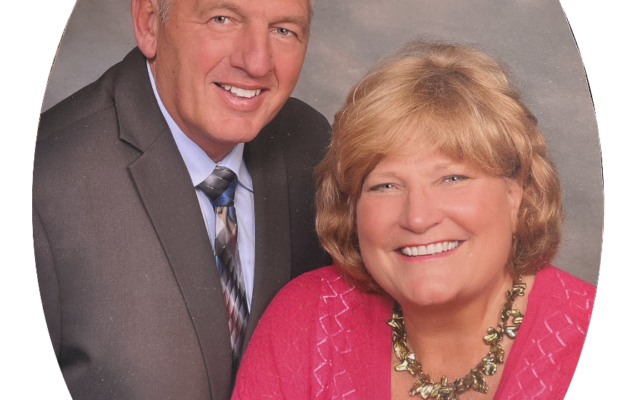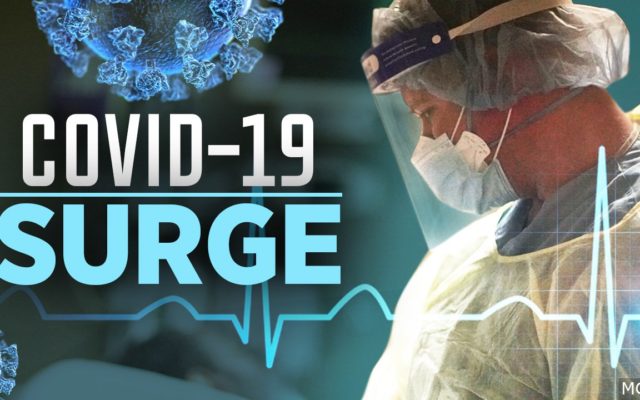
Oaklawn launches post-surgery program
MARSHALL — Oaklawn officials say surgical patients are going home more quickly, getting answers more immediately and experiencing fewer complications, just two months after the launch of a new internal process.
“If patients prepare better before surgery, the evidence shows us that they have better results after surgery,” said Ronald A. Gauthier, CRNA, Oaklawn’s director of anesthesia services. “The patients get to go home faster, there are fewer complications and they are much more satisfied with their care.”
Oaklawn’s program was initiated at the beginning of October and is based on the Perioperative Surgical Home model developed in 2015 by the American Society of Anesthesiologists in association with Charlotte, N.C.-based Premier Inc., a health-care improvement company.
“We modified the model to fit Oaklawn’s practice in the hope that we would increase patient satisfaction and decrease the length of time they spend in the hospital,” Gauthier said.
By communicating directly and repeatedly with each new patient before and after surgery through a “nurse navigator,” the newly coordinated system can focus on the patient’s care in a uniform, streamlined fashion and potentially save them considerable time and trouble, he said.
“Oaklawn has roughly a dozen physician’s offices, each of which once had their own way of providing information to the surgical patient,” Gauthier said. “That information and the way we communicate it to the patient now have been standardized. The navigator serves as a central point of contact — the one person whom the patient can call for information and help. It’s now the same for each clinic and each patient.”
Prior to surgery, each patient receives information from his or her nurse navigator about how to prepare properly for surgery — details such as fasting, fluid intake, medication use, smoking cessation, proper diet, exercise and even diabetes control.
After surgery, each patient could be contacted up to three times — two days, two weeks and two months afterward, depending on the type of procedure — so any questions or concerns can be addressed thoroughly and consistently, and any potential complications or confusing situations addressed quickly.
“If the nurse navigator can’t answer a question, he or she will get the answer from the clinic involved and contact the patient quickly,” Gauthier said.
Even in the new program’s first months, results have been encouraging, Gauthier said.
“Just in the first few weeks, we’re already seeing fewer complications during surgery, lower pain scores, less use of opioids and higher patient satisfaction,” he said. “Through this kind of communication, we can decrease the rates of surgical cancellations, avoid unnecessary patient visits, lab work and procedures, and generally help make our patients happier with their care.”
Katie Steiner and Lynette Birch are registered nurses assigned to be the nurse navigators for Oaklawn’s surgical patients. Sue Gauthier, also a registered nurse, conducts pre-admission testing to make certain each surgical patient is properly prepared and fully informed.
“Medications are a big issue,” said Steiner, who recalled helping a patient facing conflicting lists of instructions from different sources. “We worked to make sure that the appropriate medications were taken prior to surgery so the patient didn’t have any issues during or after surgery.”
A nurse navigator also might determine whether a patient also has additional symptoms that need to be brought to the attention of the surgeon, Steiner and Birch said.
“If those issues aren’t discovered, the patient could have had some unforeseen outcomes,” Birch said. “This way, we also can have more affect on the patient through the whole process. We’re finding that they’re more satisfied afterward, too.”
“It’s because we’re having more contact with the patient,” Sue Gauthier said.
Since the new program’s launch, new improvements prior to some surgeries already have been initiated after discussions with patients reporting minor post-operative complications, Ron Gauthier said.
“We’re approaching some of our patients in a different way from the beginning, because of discoveries made after these operations,” he said. “And our staff have discovered that the nurse navigators are a new and valuable single point of contact for answers that they need. That means we have a much closer relationship with other medical providers than we had before.
“Everybody from the surgeons to the clinic managers and the medical assistants has input into how these new protocols are evaluated,” Gauthier said. “We’re looking at them on a weekly basis.” That means Oaklawn officials now are able to collect an increased amount of data about how its patients fare after surgery, he said.
“It’s information that we haven’t had before, because we hadn’t had a central collection agency,” he said. “Now we’ll be able to do that and make changes if they’re necessary. Hospital-wide, we’re seeing real enthusiasm for this approach.”
The uniform process for surgical patients is reminiscent of Oaklawn’s long-established LEAN program, which began in 2013 in an effort to eliminate wasteful procedures throughout Oaklawn Hospital. Another recent program was launched earlier in 2018 brought together the Battle Creek-based CareWell Services Area Agency on Aging and Marshall-based Oaklawn and Hemmingsen Drug Store to help patients in need of special assistance with their transition to life at home.

